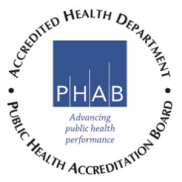Prescriptive authority is not automatically issued with an APRN license in Arkansas.
You may apply online for Prescriptive Authority which includes a separate fee. You cannot submit the application prior to the issuance of an Arkansas APRN license.
Prescriptive Authority Application
(Prescriptive Authority is not automatically issued with an Arkansas APRN License)
- Prescriptive Authority Checklist
- Overview – Endorsement
- Prescriptive Authority Verification Form for Endorsement Applicants
Collaborative Practice Agreement
Review the laws for APRN Prescribing prior to submitting a Collaborative Practice Agreement.
- Guidelines for Collaborative Practice Agreements
- Collaborative Practice Agreement
- Collaborative Practice Agreement Example
- Form to Terminate a Collaborative Practice Agreement (use this form if you need to terminate your current Collaborative Practice Agreement and submit an updated agreement)
Quality Assurance Plan
APRNs with prescriptive authority must have in place a written quality assurance plan by which patient care is evaluated and quality is maintained by the APRN.
Plan must:
- Be specific to practice area
- Be signed, dated and reviewed annually by APRN and collaborating physician/physicians
- Include written plan for corrective action, if indicated and follow-up
- Include evidence of compliance to be available to the ASBN upon request
Examples of Quality Assurance measures
(not an inclusive list – you may have other measures)
- Retrospective chart review
- Concurrent with case management
- Review of practice where patient problems are suspected or have been identified
- Audit of specific types of medical problems/conditions
- Reflective practice – includes a self-assessment and peer feed-back from a peer who has a similar role/practice – peer must ID 3 things the APRN does well and 3 things that could enhance the APRN’s practice
- Patient interview (consumer satisfaction)
Guidelines
- Quality Assurance Guidelines
- Quality Assurance Plan (Example #1)
- Quality Assurance Plan (Example #2)
Prescriptive Protocols
(You may use one of the examples below making changes as needed).
APRNs with prescriptive authority must have prescriptive protocols (indications for and classifications of legend and controlled substances. You must modify the examples provided to meet your specialty as this is a generic form. To prescribe a legend drug, medicine or therapeutic device not included in the written protocols the APRN shall obtain a specific written or verbal order obtained from the collaborating physician or podiatrist before the prescription or order is issued. The APRN shall document the consultation in the client’s medical record.
DEA Registration
An advanced practice registered nurse with prescriptive authority must obtain a DEA registration number to prescribe controlled substances (schedule II – V).
APRNs holding a certificate of prescriptive authority may contact the New Orleans office of the DEA to receive an application for a DEA registration number. Do not apply for the DEA registration prior to being issued Prescriptive Authority. The application form can be found on the web at the Diversion Control Program web site: www.DEAdiversion.usdoj.gov. At the website, select “New Registration Applications.”
Common questions concerned controlled substance applications are answered in the “Frequently Asked Questions” section of the website, or applicants can contact the Registration Call Center at 800-882-9539.
The ASBN Rules require that you submit a copy of your DEA number to the ASBN. You should upload a copy in your Arkansas Nurse Portal.
The Pharmacy Services of the Arkansas Department of Health is responsible for enforcing the Controlled Substances Act. A copy of the Rules and Regulations Pertaining to Controlled Substances and the List of Controlled Substances for the State of Arkansas may be obtained by mail:
Arkansas Dept. of Health Pharmacy Services
4815 West Markham, Slot 25
Little Rock, AR 72205
Prescriptive authority may be terminated by the Board of Nursing for failure to maintain an active APRN license or violation of any state or federal law or regulation applicable to prescriptions.
Prescription Drug Monitoring Program (PDMP)
The Arkansas PDMP was created to assist healthcare practitioners in the battle against prescription drug abuse. Act 304 of 2011 established the PDMP to be implemented under the direction of the Arkansas Department of Health. Prescribers can view their patient’s history of filled prescriptions for controlled substances prior to prescribing a controlled substance. When a pharmacist fills a prescription for a controlled substance, this information is sent to the PDMP database.
APRNs who hold DEA registration are required to register with the Arkansas Prescription Drug Monitoring Program. APRNs with prescriptive authority shall review the PDMP prior to prescribing:
- an opioid from schedule II or schedule III every time prescribing the medication to a patient; and
- a benzodiazepine for the first time and every six (6) months thereafter prescribing for a patient.
A review of the PDMP shall be documented in the patient’s medical record. (See Chapter 4 Rules)
Instructions for creating a PDMP account can be found here.
Guidelines for Collaborative Practice Agreements
An Advanced Practice Registered Nurse (APRN) with Prescriptive Authority must have a current updated Collaborative Practice Agreement (CPA) on file with the Board of Nursing. APRNs should keep their original CPA and submit a copy (PDF) to the Arkansas State Board of Nursing (ASBN) through the Arkansas Nurse Portal message center. The APRN is responsible for ensuring this requirement is met. After review of any new CPA, the APRN will be contacted through the Nurse Portal that the CPA has been approved or it has been denied and the reason for the denial. You may NOT practice under a CPA until you receive an approval letter.
The APRN must notify the Board in writing within seven (7) days after the CPA is terminated. If the Board does not have a current CPA on file, the APRN’s Prescriptive Authority will be inactivated. When a new CPA has been approved by Board staff, Prescriptive Authority is reactivated.
The Collaborative Practice Agreement must meet the following criteria:
- Must be complete and legible and on the current, unmodified form.
- The collaborating physician must have a current AR license to practice under the Medical Practice Act, § 17-95-201. The collaborating physician must also have an unrestricted DEA registration number for APRNs who prescribe controlled substances.
- The collaborating physician must have training within the scope, specialty, or expertise of the APRN’s practice/specialty.
- A provision addressing the availability of the collaborating physician for consultation and/or referral.
- Method of management of the collaborative practice (include a statement regarding protocols for Prescriptive Authority)
- Plans for coverage of the health care needs of the patient in the emergency absence of the APRN or collaborating physician.
- Provision for quality assurance (attach a separate Quality Assurance Plan that has been signed by the APRN and the collaborating physician).
- Signatures with dates of both the APRN and the collaborating physician.
- License numbers and certification specialties of both the APRN and the collaborating physician.
- Address and phone number of the APRN’s and physician’s practice site(s).
- The APRN and collaborative physician must both initial the requested category of controlled substances.


